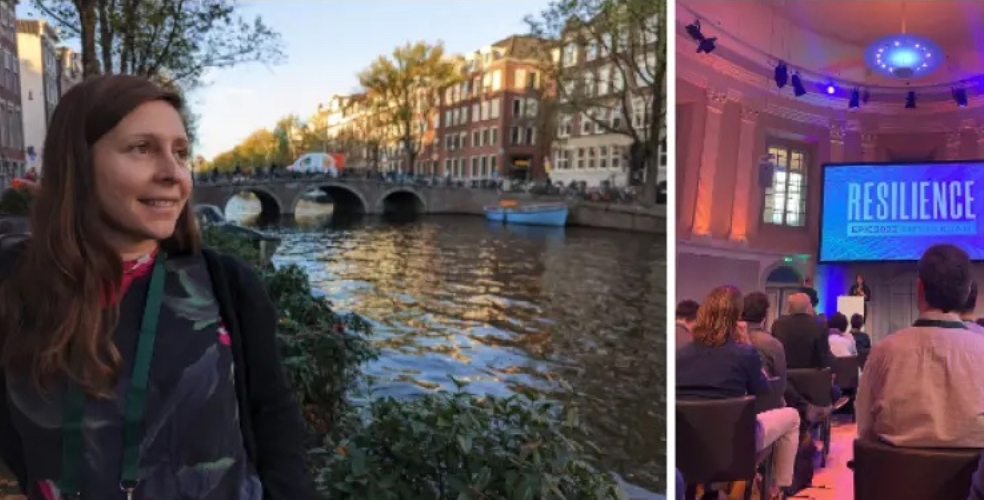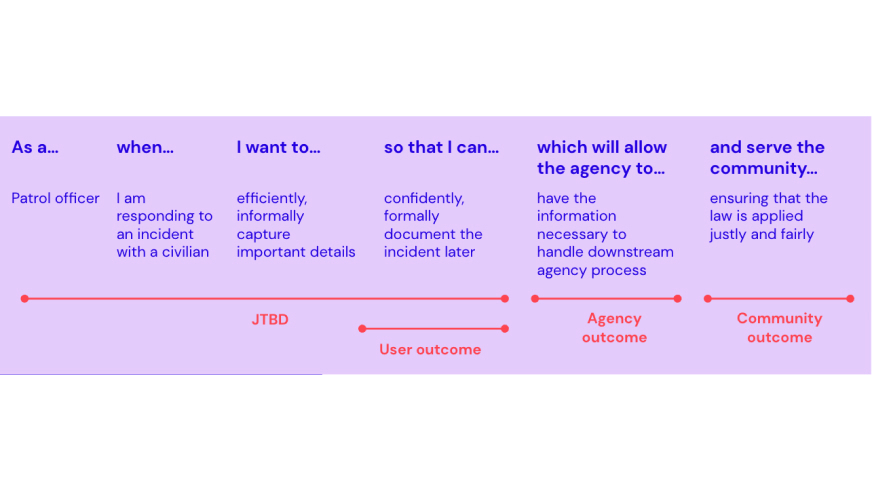Back in October 2022, I attended the EPIC 2022 conference in Amsterdam. The energy was palpable along the canal in front of the impressive Felix Meritis building as groups of social scientists and researchers waited for their badges. This was the first time since the pandemic that we were coming together in person to attend EPIC (Ethnographic Praxis in Industry Conference).

EPIC, founded in 2005 is the most reputable applied anthropology conference in the world. It brings together practitioners to present papers, case studies, engage in open spaces and town hall discussions, attend workshops, and to network with their peers. This year the conference focused on the topic of ‘Resilience’.
These are some of the themes I’d like to share, along with how we’re bringing back learning into our Design Research work at TPXimpact.
Talking resilience
On day one of the conference, Cato Hunt (Space Doctors) kicked off discussions by explaining that the language of business is no longer fit for purpose when thinking about reliance. By introducing new concepts and metaphors, we can start to redefine success through new values and behaviours.
At TPXimpact, we’ve started focusing on impact using an idea that was shared here – ‘Key Value Indicators’. Through this lens, we’ve been able to develop an inequalities framework that supports better commissioning of services for communities across the UK affected by gambling harms.
Changing the language of resilience
Melissa Gregg (Intel) explained how the language of business doesn’t yet admit the reality of the climate crisis. In her closing keynote, Melissa stressed that our data-driven culture, full of projections and estimates, isn’t made to help us know what to do.
Melissa shared a framework by Leith Sharpe that I’ve since found myself using to discuss the importance of early and continuous stakeholder involvement in design. The idea here is that ‘adaptive networks’ – where most of our work as design practitioners happens – and ‘hierarchical networks’, are equally important in organisations. They each have different purposes and ways of being successful. Both are required to support change and address today’s problems. We can de-risk and present work in a way that gets buy-in from those in hierarchical networks. Trust is at the core of this.
Expectations of resilience
Another point that was discussed during the conference was the need for a more critical perspective on resilience in research. Both what resilience means to us as practitioners, and what it means when used to describe the people with lived experience we work with.
Nadya Pohran (Aluminati) shared concerns about the expectations of how we must remain resilient in our work.
Nadya described approaching burnout several times. But resilience was always required of her. Her university didn’t know how to support her. Similarly, anthropologists for business are expected to ‘pivot’ the conversation — often quickly ending an interview and jumping into an unrelated meeting. It doesn’t matter that someone shared their grief or sorrow with us. We need to speed it up, we have a deadline. It can feel cold.
Empathy is key. But empathy is not just taking the perspectives of others. It’s understanding their emotional experience. At TPXimpact, we are applying this to our research practices by asking ourselves how we might make sure we are being equitable in the work that we do, to consider positionality, agency and power in our organisation, and with our teams and clients.
Resilience as survival
Multiple talks by BAME contributors at the conference highlighted that they are asked to play the role of resilient, strong Black or Latina women – not by choice, but because of the traumas they live through.
Jenny Rabodzeenko (Allstate) and Kelly Costello (WIND) discussed their work at Cook County Jail in Texas, where 70% of the female inmates suffer from mental health issues. Their safety nets – family, community health and social care – have all failed them.
These women are committing crimes of survival. And in reality, resilience is simply another word for that survival. They’re made invisible as a result – unseen in jail, or homeless. We have to extend our inclusion to them and become more resilient together.
Resilience approached holistically
Stefani Bachetti (Motorola) – who supports the US police force through the products she designs – described needing to look at things from the point of view of both the police and the community. This can feel paradoxical in the current political climate. Stefan shared a tool that gives us a framework to reflect on the outcomes of diverse actors operating together.

Taking this back to our own work, I’ve been considering how TPXimpact could use this model to support organisations in how they understand frontline workers more holistically.
I’m hopeful that as we continue to acknowledge and discuss resilience, we will get better at communicating and incorporating these reflections in our day to day work.
If you’d like to learn more about the content and themes from the 2022 EPIC conference, you can access video content from the event here.
Our recent design blog posts
Transformation is for everyone. We love sharing our thoughts, approaches, learning and research all gained from the work we do.
-

-

Naming services in complex situations
Read blog post -

Using inclusive research approaches with Blood Cancer UK
Read blog post -

Designing for users who don’t exist (yet)
Read blog post
